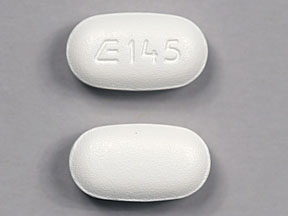
Relafen Coupons & Savings Card – Discount Prices from $11.16
Brand for: Nabumetone
My prescription
Edit
500MG, Nabumetone (60 Tablets)
Select pharmacy

CVS
$22.80
COUPON PRICE
Walmart
$11.16
COUPON PRICE
Walgreens
$15.60
COUPON PRICE
Albertsons
$17.94
COUPON PRICERelafen savings card
Show this card to your pharmacist
Walmart
$11.16
BIN
ID
PCN
GRP
019876
LHE2224665
CHIPPO
LHX
Powered by
More prescriptions for rheumatoid arthritis
More prescriptions for rheumatoid arthritis
Relafen (Nabumetone) dosage forms
Dosage Quantity Price from Per unit 500MG 60 Tablets $11.16 $0.19 500MG 1 Tablet $2.64 $2.64 500MG 7 Tablets $3.51 $0.50 500MG 10 Tablets $3.94 $0.39 500MG 14 Tablets $4.52 $0.32 500MG 15 Tablets $4.67 $0.31 500MG 20 Tablets $5.39 $0.27 500MG 28 Tablets $6.54 $0.23 500MG 30 Tablets $6.83 $0.23 500MG 40 Tablets $8.27 $0.21
| Dosage | Quantity | Price from | Per unit |
|---|---|---|---|
| 500MG | 60 Tablets | $11.16 | $0.19 |
| 500MG | 1 Tablet | $2.64 | $2.64 |
| 500MG | 7 Tablets | $3.51 | $0.50 |
| 500MG | 10 Tablets | $3.94 | $0.39 |
| 500MG | 14 Tablets | $4.52 | $0.32 |
| 500MG | 15 Tablets | $4.67 | $0.31 |
| 500MG | 20 Tablets | $5.39 | $0.27 |
| 500MG | 28 Tablets | $6.54 | $0.23 |
| 500MG | 30 Tablets | $6.83 | $0.23 |
| 500MG | 40 Tablets | $8.27 | $0.21 |
| 500MG | 42 Tablets | $8.56 | $0.20 |
| 500MG | 90 Tablets | $15.49 | $0.17 |
| 500MG | 100 Tablets | $16.94 | $0.17 |
| 500MG | 120 Tablets | $19.82 | $0.17 |
| 500MG | 180 Tablets | $34.98 | $0.19 |
| 500MG | 240 Tablets | $43.64 | $0.18 |
| 500MG | 300 Tablets | $48.80 | $0.16 |
| 500MG | 360 Tablets | $53.30 | $0.15 |
| 500MG | 500 Tablets | $63.80 | $0.13 |
| 750MG | 14 Tablets | $5.24 | $0.37 |
| 750MG | 20 Tablets | $6.42 | $0.32 |
| 750MG | 28 Tablets | $7.98 | $0.28 |
| 750MG | 30 Tablets | $8.37 | $0.28 |
| 750MG | 40 Tablets | $10.33 | $0.26 |
| 750MG | 42 Tablets | $10.72 | $0.26 |
| 750MG | 60 Tablets | $14.25 | $0.24 |
| 750MG | 90 Tablets | $20.12 | $0.22 |
| 750MG | 100 Tablets | $22.08 | $0.22 |
| 750MG | 120 Tablets | $24.96 | $0.21 |
| 750MG | 180 Tablets | $41.94 | $0.23 |
| 750MG | 300 Tablets | $53.60 | $0.18 |
| 750MG | 500 Tablets | $71.80 | $0.14 |
What is Relafen prescribed for?
Relafen, which contains the active ingredient nabumetone, is prescribed for the relief of symptoms associated with osteoarthritis and rheumatoid arthritis. It helps reduce pain, swelling, and joint stiffness.
Why was Relafen discontinued?
Relafen, known generically as nabumetone, was discontinued by its manufacturer due to business reasons rather than safety or efficacy concerns. It is important to note that generic versions of nabumetone are still available on the market for those who require this medication.
Is nabumetone a strong painkiller?
Nabumetone is a nonsteroidal anti-inflammatory drug (NSAID) used to relieve pain and inflammation. It is not considered a strong painkiller like opioids, but it can be effective for managing mild to moderate pain, particularly related to conditions like arthritis.
Is Relafen the same as ibuprofen?
Relafen (nabumetone) and ibuprofen are both nonsteroidal anti-inflammatory drugs (NSAIDs), but they are not the same medication. They have different chemical structures and may have different dosing regimens and side effect profiles. Both are used to relieve pain and inflammation, but they are distinct drugs.
What drugs should not be taken with nabumetone?
Nabumetone should not be taken with certain medications due to potential interactions. These include:1. Other nonsteroidal anti-inflammatory drugs (NSAIDs) like ibuprofen or aspirin, as they can increase the risk of gastrointestinal bleeding.2. Anticoagulants such as warfarin, which may increase bleeding risk.3. Corticosteroids, which can also elevate the risk of gastrointestinal issues.4. Selective serotonin reuptake inhibitors (SSRIs) and serotonin-norepinephrine reuptake inhibitors (SNRIs), as they may increase bleeding risk.5. Diuretics, as nabumetone may reduce their effectiveness.6. Lithium, as nabumetone can increase lithium levels in the blood.7. Methotrexate, as nabumetone can increase its toxicity.It is important to consult a healthcare provider before combining nabumetone with any other medications.
